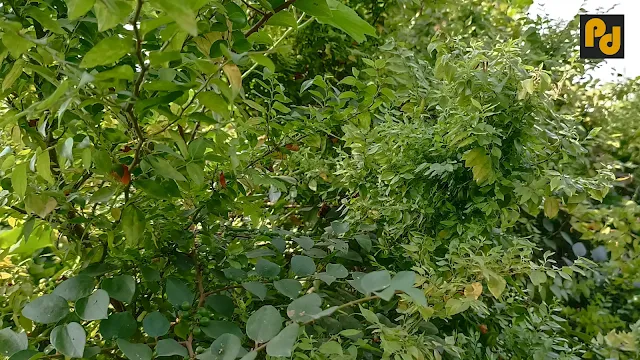Phytoplasma
Biology
Phytoplasma belongs to a wall-less bacterial group (Class Mollicutes). Previously known as mycoplasma like organisms (MLOs), phytoplasma are obligate, phloem-residing plant pathogens. Phytoplasmas were discovered by electron microscopy of ultra thin sections of infected plants by Japanese scientists Doi et al. (1967). These are ranging between 0.2 to 0.8 µm and are too small to be resolved by light microscope. Phytoplasmas are surrounded by tipple-layered plasma membranes and hence have a fluid shape, i.e., they are pleomorphic in nature and change their shape. The membrane of phytoplasma consists of lipoprotein. Phytoplasmas are, although wall-less, closely related to the Gram-positive bacteria at the genetic level. Because of the lack of cell wall, they are resistant to the peptidoglycan-targeting antibiotics like, penicillin. Phytoplasmas are among the smallest know cells and the smallest genome of about 680-1600 kb. Their genome consists of both DNA as well as RNA.
Little leaf, phyllody, witches' broom, big bud and flower virescence are symptoms of the diseases caused by phytoplasmas. Phytoplasmas parasitize following plants:
Phytoplasmas are transmitted plant to plants through the insects (leaf hoppers), by seeds and other plant propagating materials and through the dodder.
 |
| Phytoplasma-infected tree of jujube showing witches' broom |
| Sr. | Plant | Family | Disease |
| 1. | Brinjal | Solanaceae | Little leaf of brinjal |
| 2. | Sesamum | Pedaliaceae | Phyllody |
| 3. | Sugarcane | Poaceae | Grassy shoot |
| 4. | Peach | Rosaceae | Rosette |
| 5. | Potato | Solanaceae | Stolbur of potato |
| 6. | Tomato | Solanaceae | Big bud of tomato |
| 6. | Jujube | Rhamnaceae | witches' broom |
Phytoplasmas are transmitted plant to plants through the insects (leaf hoppers), by seeds and other plant propagating materials and through the dodder.
References
- Doi, Y., Teranaka, M., Yora, K., and Asuyama, H. (1967). Mycoplasma or PLT grouplike microrganisms found in the phloem elements of plants infected with mulberry dwarf, potato witches’ broom, aster yellows or pawlownia witches’ broom. Ann. Phytopath. Soc. Japan. 33, 259–266. doi:10.3186/jjphytopath.33.259
Content first created on 31-05-2020
last updated on 17-12-2023
last updated on 17-12-2023

